5. Oliver Stone – U Turn (1997)
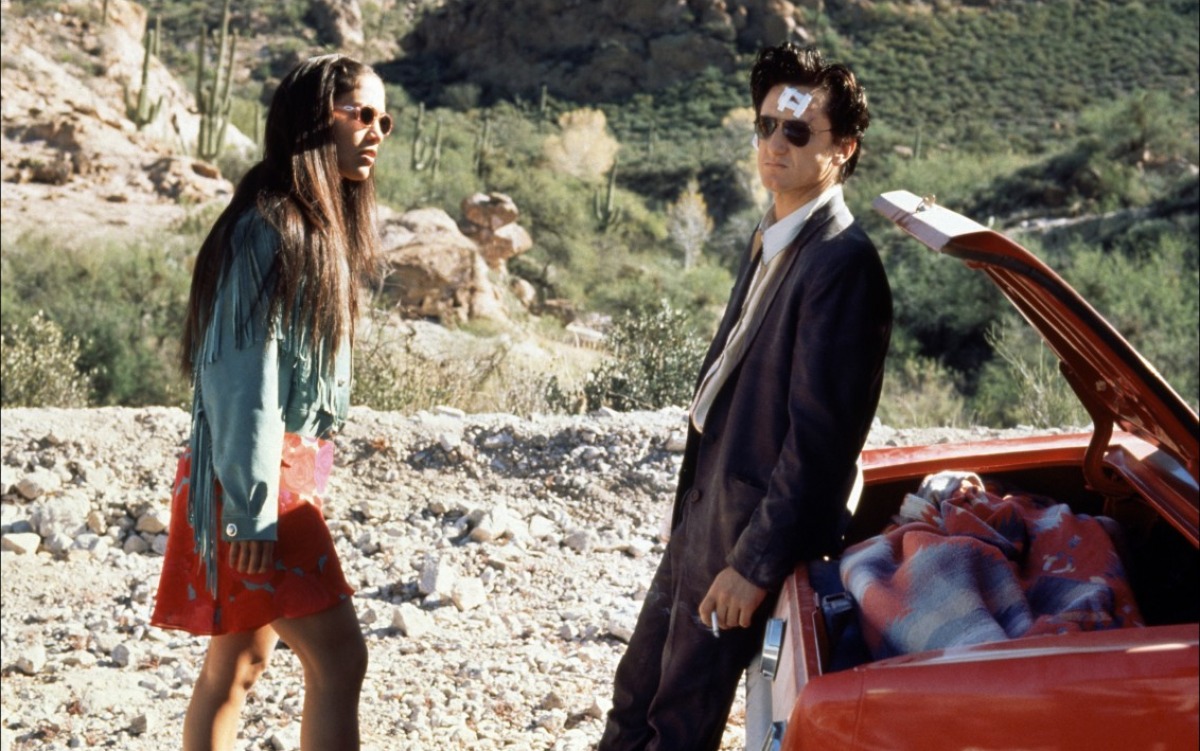
Oliver Stone was, at one time, arguably the best director working in America. There’s room to debate that of course, especially when you have the likes of Scorsese and Spielberg, but Stone was a director who really came into his own in the late 80’s. “Platoon” was the big launching pad for his career and became recognized as one of the greatest films of its time.
After this he followed it up with “Wall Street”, the very underrated “Talk Radio”, another Best Director victory with “Born on the Fourth of July”, a masterful work with “JFK”, and some unloved cousins, so to speak, in his filmography like “The Doors”, “Heaven & Earth”, and the oh so controversial “Natural Born Killers”. Some claim his downfall started with “Nixon” in 1995 but I disagree, that was still a compelling bio-drama.
“U Turn” is where I feel Stone had finally made a massive misstep. Stone had comfortably built his reputation off historical pieces, whether it be his personal experiences in Vietnam or tackling controversial questions like the JFK assassination. But “U Turn” was, I assume, an attempt at trying something different and tackling a genre he hadn’t really done before. The result is a disjointed, repetitive exercise in pointlessness.
After this Stone would make a massively unimpressive sports film “Any Given Sunday”, a horrendous historical drama “Alexander”, a meandering drama in “World Trade Center”, a semi-decent biography in “W.”, and some less-than-impressive films in “Wall Street: Money Never Sleeps” and “Savages”.
To be fair, I think Stone found his knack once again with “Snowden”, a figure that’s so up his ally that if he didn’t already exist, I’m sure Stone would’ve created him himself. And he followed this up the next year with his 4-episode series “The Putin Interviews”, see this is the kind of stuff he should be doing. But as is, we’ve had a disappointing list of works for quite a while now.
4. Alfred Hitchcock – The Birds (1963)
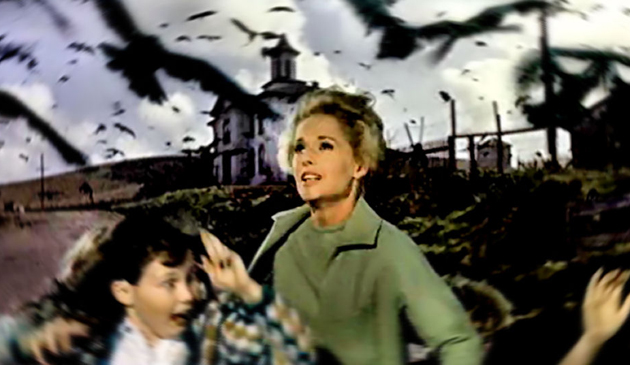
Alfred Hitchcock is arguably the greatest director of all time, there’s perhaps no other director whose had a more prominent influence on generations of filmmakers than he did. He started out his career with good films in his home country of Britain in the 20’s and 30’s, but once immigrating to America in 1940 is when Hitchcock really found his stride of greatness.
There’s too many classics to count from “Rebecca”, to “Shadow of a Doubt”, to “Notorious”, to “Spellbound”, to “Rope”, to “Dial M for Murder”, to “Strangers on a Train”, to “Rear Window”, to “Vertigo”, to “North by Northwest”, to “Psycho”. All of which came about in a relatively short amount of time.
And then he made “The Birds”, which was still fairly good all things considering when it should’ve been the dumbest movie given its premise. But that same level of quality we had come to expect with Hitchcock was slowly fading away, still having its moments of brilliance like with “Frenzy”, but still not quite that incredible talent he had in the years before. I think what it largely came down to is that Hitchcock wasn’t hitting that personal reflection to his films he was having prior.
I don’t know if it was just that he unloaded everything he had and had not much left, or if it was just a sign of an artist getting older and losing his edge, but once you got to “Family Plot” it was time for the master to take his well-deserved rest. He finally retired, in the years following would earn his deserved Lifetime Achievement Award from AFI and pass away in 1980. Leaving behind a legacy that we’re still trying to live up to.
3. Francis Ford Coppola – One From the Heart (1981)
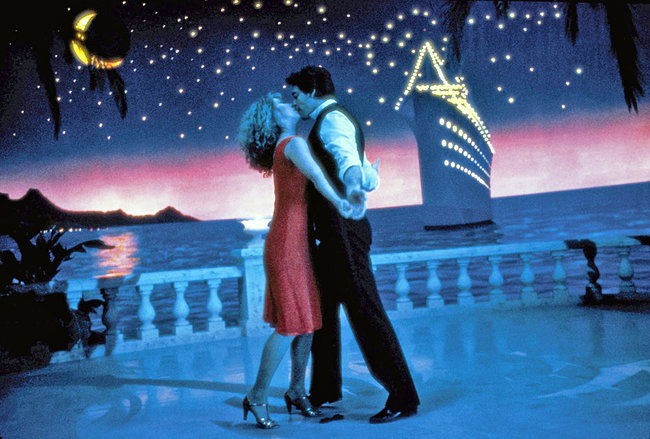
I think you will be very hard pressed to find a better director in the 1970’s than Francis Ford Coppola. “The Godfather” film and “Apocalypse Now” alone is all the evidence I need to support that statement, but in combination with these he also directed “The Conversation”, served as producer of films like “American Graffiti” and “Paper Moon”, and wrote the screenplay for the Best Picture winning “Patton”.
So it seemed as though Coppola could do no wrong and was going down in history as one of the greatest directors of all time, and certainly there’s still an argument to be made for that. But then the 80’s rolled around and his first feature this decade was “One From the Heart”, not a terrible film per say but certainly a step down from what we saw from him previously.
But hey, it was just one movie, and everyone will have a slip up now and then right? Well then came films like “Rumble Fish”, “The Outsiders”, “The Cotton Club”, “Captain EO”, and “Peggy Sue Got Married”, not to mention horrible movies later on like “Jack” and “The Godfather Part III”.
Whether you like any of these films or not is for you to decide, and to be fair not everything he’s made has been bad, but clearly something’s happened to where he’s not that gold standard he once was. And to be blunt, he’s simply moved on to other interests ranging from theater to winery. And you know what, screw it, he’s given us timeless classics and all-time greats so I’d say he’s earned his ability to do whatever he wants.
2. George Lucas – Star Wars Episode I: The Phantom Menace (1999)
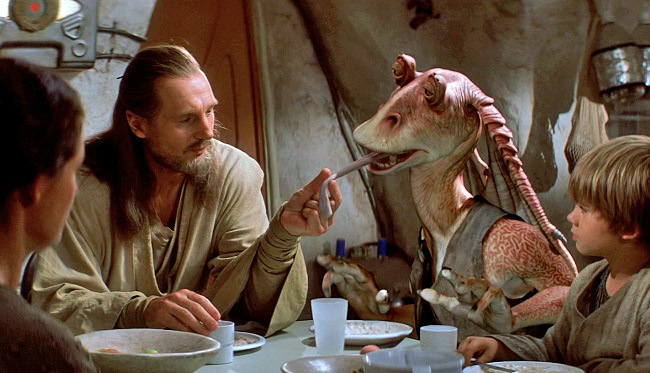
What can be said about the most disappointing film of an entire generation? For many people, myself included, this was the moment we realized the emperor has no clothes – a “Star Wars” movie can suck.
Before this it was commonly believed that the “Star Wars” franchise were 3 of the most game changing, universally beloved films of all time. And who did we have to credit for that, none other than George Lucas. But the funny thing about the badness of “The Phantom Menace” is that all the signs were there right before our eyes that it was going to blow.
Lucas hadn’t directed a film since the original “Star Wars” in 1977, after that he worked as a story writer and producer for the sequels and “Indiana Jones” films – and we can even make the argument that as good as those films were they still had their flaws we were willing to ignore.
And now with 20 years of people calling him a visionary genius, with hardly any filmography to his name, it should’ve been clear as day what we were in for. But it just took us a few years to truly accept it, but eventually we had to learn the truth about the danger of hype and how our heroes can make failures.
1. Michael Cimino – Heaven’s Gate (1980)
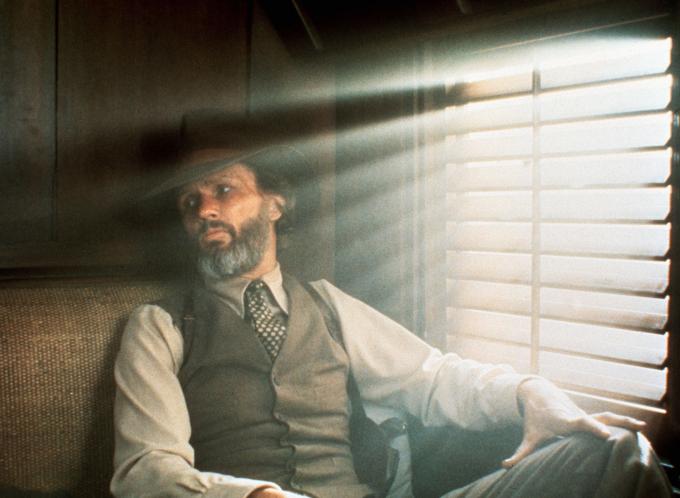
Say what you want about Lucas, at least his movies were financial hits that continued to grow the franchise of “Star Wars”. The same can’t be said about Michael Cimino who went from a promising rookie career in the 70’s to making such a cataclysmic bomb that it not only bankrupted United Artists and destroyed his reputation as a director, but also forever changed the model for which production companies were going to work with their directors.
Cimino had written some screenplays before this for Clint Eastwood films, “Magnum Force” and “Thunderbolt and Lightfoot” (The latter he made his directional debut with), but his massive breakthrough came with the Best Picture winning war drama, “The Deer Hunter” in 1978. And rightfully so, it was a truly great film and now he was on his way to reaching superstardom with his future career. Sadly, it was not meant to be.
“Heaven’s Gate” is a film that had a lot of bad coverage going into it regarding animal cruelty and how overblown its production was getting. As more and more stories were coming out, it started to become clear how overbearing Cimino’s direction was – sending the film over schedule, over budget, and creating massively bad press before the film had even come out. When it was finally released, the results were disastrous.
“Heaven’s Gate” is historically recognized as one of, if not the, biggest bombs of all time. Running at an excruciating 4 hour run time when initially screened, eventually shortened down to 3½ hours, and then 2½ hours for its official release, it proved to be an ungodly boring tale of the Johnson County War in 1890 Wyoming, with horrendously ugly visuals to accompany it.
An old fashion look is to be expected out of westerns like this, but this took it way too far. Nearly every shot is filled with a ghastly yellowish-brown color scheme, filled with smoke or fog to drown everything out, and shot out of focus that the whole thing seems like a blur.
The reputation the film was receiving beforehand was really positioning the nail just right, then once it was released it was the hammer that slammed the nail into the coffin. Cimino never recovered from this, as mentioned before United Artists went bankrupt, and the auteur theory was officially dead. From this point, studios took firm control of productions and limited the visions of the directors – leading to a highly commercialized film industry that continues to this day.